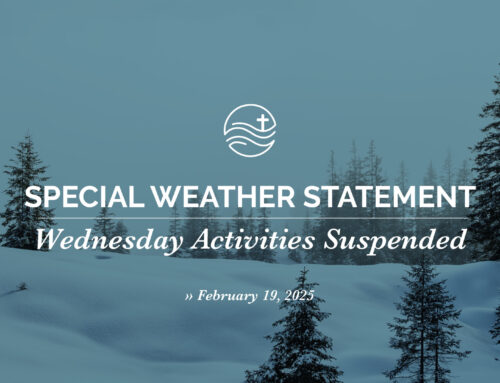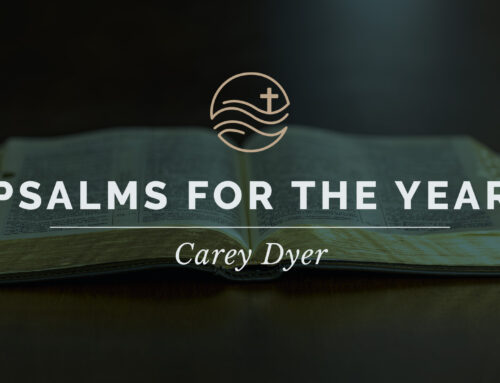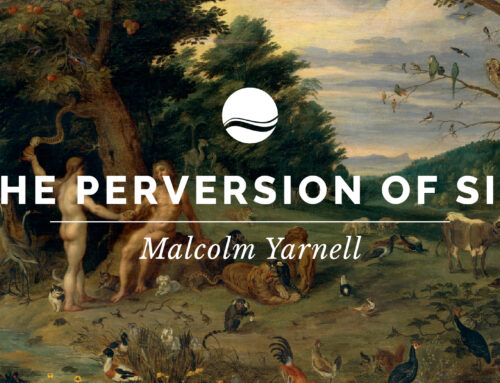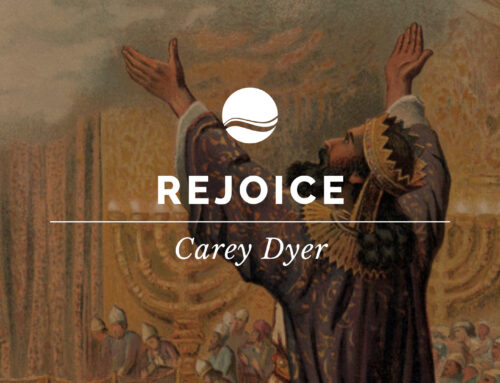
Abound or Abide? // Mark Forrest
One of my favorite parts of The Iliad is when Odysseus navigates a narrow passage with a lethal rock on one side and a fatal whirlpool on the other. Steering between Scylla and Charybdis has been part of our vocabulary ever since.
In my relationship with the Lord, I have my own Scylla and Charybdis to navigate, but their names are “Abound” and “Abide.”
I want to abound. “Therefore, my dear brothers and sisters, be steadfast and immovable; always abounding fully in the work of the Lord, because you know that your labor in the Lord is not in vain” (1 Corinthians 15.58).
I want to experience such a level of motivation that sometimes when I think about the work of the LORD it keeps me awake at night.
But on the other side of my life is Jesus’ statement in John 15.4: “Abide in me, and I will abide in you. No branch can bear fruit by itself; it must abide. Neither can you bear fruit by yourself. You must abide.”
I feel the power of this call as well, the call to be a man of deep prayer, to experience joy and sorrow deeply.
In Mark 1, Jesus withdrew into the desert to abide with his Father, then plunged into the city to abound in his work, then withdrew while it was still dark to abide, only to be accosted by Peter (“everyone is searching for you”). Jesus doesn’t say: “Don’t bother me—I’m abiding.” He goes off to abound some more.
Some people resolve this tension by just abiding. Garrison Keillor wrote about a patronizing do-gooder who lived by the “If I can just help one fainting soul for a moment my work was not in vain” philosophy—a strategy that makes it rather difficult to fail.
People are not challenged, resources are not well-stewarded—and no one complains. People just get used to not abounding.
On the other hand, some people live in a chronic state of exhaustion and burnout. They may pile up impressive accomplishments, but their spiritual life is dry.
How do we both abide and abound?
1. Focus on what matters most.
Recognizing what counts as a true contribution is the great challenge. Sloth, Frederick Buechner said, isn’t necessarily incompatible with heavy activity. It’s failing to do what needs to be done when it needs to be done. Like the kamikaze pilot who flew 17 missions.
2. I need to be fully present.
Jean Pierre de Caussade described the “Sacrament of the Present Moment.” It means being fully present to God’s call right now.
It’s not just that we wrestle with these forces; it’s that we glorify them. Busyness becomes a sign of being important. Dorothy Bass noted that the fourth commandment is the only one that people commonly boast about breaking.
3. I need rhythm.
One striking aspect of the Creation narrative is that God didn’t get all his work done at once. Why not? God was establishing a pattern, a rhythm, for people made in his image.
God worked. And when he was done, God rested. He called it a day. He celebrated what he had done. He never burned out. He never said, “Thank Me it’s Friday.”
But my days for solitude never volunteer. They must be drafted.
4. I need to focus on abounding where God has gifted and placed me.
Parker Palmer writes about being offered the presidency of a large educational institution. Because it was a step up the ladder for a teacher, he was ready to say yes. He first called some friends to help him discern if it was God’s call.
Someone asked:
“What would you enjoy most about being president?”“Well, I wouldn’t like not teaching,” Palmer said. “I wouldn’t like the politics involved … I wouldn’t like fund-raising.”“But what would you like?”After a long pause, he said quietly, “I would like to have my picture in the paper with the word ‘president’ under it.”
Parker, couldn’t you find an easier way to get your picture in the paper?
Wait, my picture in the paper? . . . Who doesn’t want that? Wait, do they still have papers?
– Pastor Mark Forrest







